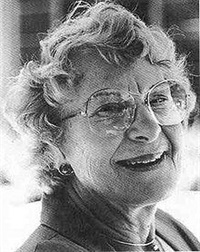EP85 Clinical Presentation 18 - Virginia Interviewing a Family (Video & Discussion) - Virginia M. Satir, ACSW
- Average Rating:
- Not yet rated
- Topic Areas:
- Clinical Presentations | Psychotherapy | Family Therapy | Parenting
- Categories:
- Evolution of Psychotherapy | Evolution of Psychotherapy 1985 | Pioneers in Couples and Family Therapy
- Faculty:
- Virginia Satir, MA, ACSW
- Course Levels:
- Master Degree or Higher in Health-Related Field
- Duration:
- 54:20
- Format:
- Audio and Video
- Original Program Date:
- Dec 14, 1985
- License:
- Never Expires.
Description
Description: A family therapy session with Virginia Satir addressing challenges in a blended family. The family works through communication barriers and emotional disconnects. Satir uses innovative techniques like sculpting to help family members understand each other's perspectives, reduce blame, and create a more supportive family dynamic.
Credits
Handouts
| Timestamped Transcript (1.1 MB) | 30 Pages | Available after Purchase |
| Ericksonian Learning Snapshot (257.4 KB) | 2 Pages | Available after Purchase |
Faculty

Virginia Satir, MA, ACSW Related Seminars and Products
For almost forty years, Virginia Satir has practiced and taught psychotherapy. One of the founders of family therapy, she has co-authored four books and authored five. Additionally, there are a number of books about her approach. She was recipient of the Distinguished Family Therapy Award from the American Association of Marriage and Family Therapy.
Satir wass the co-founder of the Mental Research Institute. She wass past president of the Association of Humanistic Psychology and has a number of honorary doctorates. Her master's degree was granted in 1948 from the University of Chicago School of Social Service Administration.


